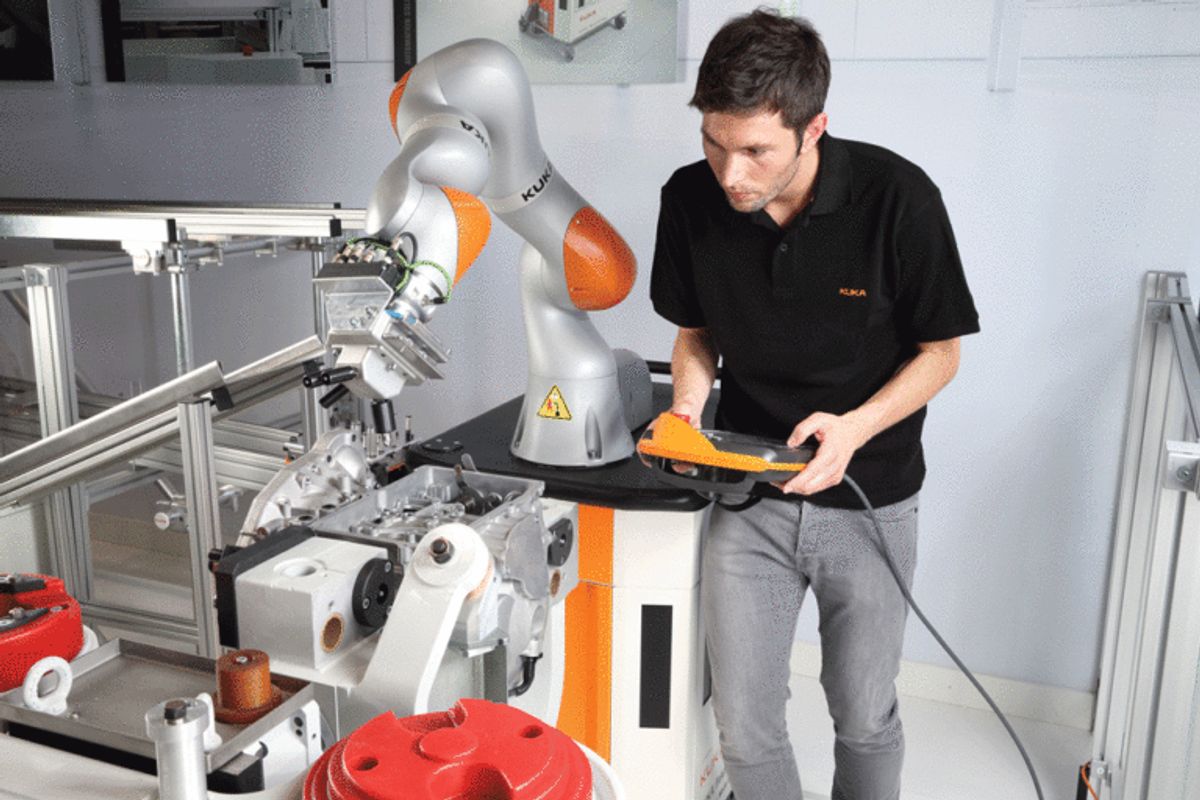In the bustling world of retail, artificial intelligence (AI) is not just transforming the way we shop; it's revolutionizing the entire customer support paradigm. AI-powered tools are enhancing the shopping experience by providing personalized recommendations, streamlining operations, and offering seamless support, both online and offline. This article delves into the multifaceted role of AI in retail store shopping, highlighting the innovative ways in which it's shaping tomorrow's shopping experience.
Key Takeaways
- AI is personalizing retail shopping by tailoring product recommendations and marketing, utilizing data analytics to understand customer preferences.
- Operational efficiency in retail is significantly improved through AI, with advancements in inventory management, checkout systems, and demand forecasting.
- AI enhances customer service by providing frontline chatbots and virtual assistants, empowering staff with AI tools, and integrating online and offline support.
- Retailers face challenges in adopting AI, including technical and ethical hurdles, balancing automation with human employment, and protecting customer privacy.
- Future retail trends involve generative AI, smart carts, and robotics, focusing on sustainable and ethical practices to reshape the customer experience.
Personalization at Scale: AI's Role in Customizing the Shopping Experience

Tailoring Product Recommendations with AI
In the era of retail personalization, AI is the game-changer. It transforms the shopping experience by making it uniquely tailored to each individual. By analyzing vast amounts of customer data, AI crafts detailed profiles that drive personalized marketing and product suggestions. This not only enhances the customer journey but also boosts the retailer's ability to connect with their audience on a deeper level.
Retailers now have the power to predict and shape the shopping experience with unprecedented precision. AI's ability to interpret customer preferences and habits leads to more effective and personalized product recommendations.
Retailers are leveraging AI to offer individualized prices and promotions, based on a customer's shopping behavior and price sensitivity. This strategic use of predictive analytics not only maximizes profits but also ensures customers feel uniquely valued. The table below illustrates the impact of AI on key retail metrics:
By integrating AI into their systems, retailers are not only making smarter purchasing decisions but are also staying ahead of market trends, ensuring they meet their customers' needs more effectively.
AI-Driven Digital Signage and Marketing
The integration of AI into digital signage is transforming the retail landscape, making marketing efforts more effective and personalized. AI-powered digital signage adapts content in real time, catering to the demographic present, the time of day, or ongoing promotions, thus enhancing the shopping experience.
The dynamic nature of AI-driven digital signage means that it's not just a passive display but an active participant in the customer journey. Retailers can now leverage data to optimize content, mirroring the effectiveness measurement of online content in physical stores.
A study by Spectrio highlights the impact of AI on digital signage, showing a 50% increase in content relevance, which can lead to better customer engagement and potentially higher sales. Features like radar technology and computer vision provide valuable insights into viewer demographics and behaviors, allowing for strategic content adjustments.
The key to captivating customers lies in smart content that resonates. AI analyzes behavior, preferences, and emotions to create messages that not only attract attention but also encourage interaction and sales.
Understanding Customer Preferences Through Data Analytics
Retailers are increasingly turning to data analytics to understand and anticipate customer preferences. By analyzing past purchases, browsing patterns, and other relevant data, AI systems can identify trends and predict future buying behaviors. This understanding of consumer preferences can support strategic product placement, bundling, and cross-selling, influencing future buying behaviors.
Retailers can leverage AI to gain a real-time view of customer behavior, adjusting their strategies to create personalized experiences that resonate with individual customers.
The key to harnessing the full potential of AI in retail lies in the balance between personalization and automation. A customer-centric AI strategy begins with a comprehensive analysis of customer data to identify behaviors, preferences, and pain points. With these insights, retailers can pinpoint where AI can make the most significant impact, whether in personalization, customer service, or operational efficiency.
Operational Excellence: Streamlining Retail with AI

Inventory Management and Stock Optimization
The integration of AI into inventory management is transforming the retail landscape. By leveraging predictive analytics, retailers are now able to anticipate consumer demand with remarkable accuracy. This foresight allows for a more efficient restocking process, ensuring that popular items are always available, while also reducing the likelihood of overstocking less popular items. The result is a finely-tuned inventory that aligns closely with consumer behavior, leading to increased sales and reduced waste.
Retailers utilizing AI for inventory optimization benefit from a data-driven approach that enhances decision-making. Real-time analytics provide a dynamic view of stock levels, enabling quick adjustments to purchasing strategies in response to market fluctuations. This agility is crucial for maintaining a competitive edge in the fast-paced retail sector.
The strategic application of AI in inventory management not only streamlines operations but also contributes to significant gross margin improvements for retailers.
Here's a snapshot of how AI impacts inventory management:
- Demand Forecasting: AI analyzes historical sales data to predict future stock needs.
- Stock Optimization: Minimizes overstock and understock scenarios.
- Operational Efficiency: Streamlines stock control and purchasing decisions.
- Cost Reduction: Decreases excess inventory, leading to cost savings.
- Revenue Boosting: Ensures popular items are in stock to meet consumer demand.
AI-Powered Checkout Systems and Self-Service
The advent of AI-powered checkout systems has marked a significant shift in the retail landscape, offering a seamless and efficient conclusion to the shopping experience. These systems utilize advanced algorithms to expedite the checkout process, recognizing products and updating inventory levels with precision. Customers benefit from reduced wait times and a more autonomous shopping journey, while retailers enjoy the dual advantages of increased transaction speed and accuracy.
- AI-driven self-service options cater to the tech-savvy consumer, enhancing the overall retail experience.
- By analyzing shopping patterns, AI can optimize staffing during peak hours, ensuring a smooth flow even during busy periods.
- Frictionless checkout experiences, powered by AI, are redefining convenience in various settings, from stadiums to standalone stores.
The integration of AI in checkout systems is not just about keeping pace with technological advancements—it's about leading the charge in retail innovation, setting a new standard for customer satisfaction and operational efficiency.
Predictive Analytics for Demand Forecasting
Predictive analytics is transforming the retail landscape by enabling stores to anticipate demand with remarkable precision. Retailers can now forecast which products will be in high demand and adjust their inventory accordingly, minimizing the risk of stockouts or overstocking. This approach not only ensures customer satisfaction by having the right products available but also optimizes the supply chain, reducing waste and increasing profitability.
Retail CFOs are increasingly turning to AI-driven predictive analytics for inventory decisions. By analyzing vast amounts of customer data, AI can uncover patterns and trends that inform strategic restocking. For example, 59% of retail CFOs plan to use customer data analytics to align inventory with predicted demand, a move that promises to enhance efficiency and responsiveness.
Predictive analytics in retail is not just about responding to current trends but anticipating future ones. It allows retailers to be proactive rather than reactive, adapting to the market with agility.
The benefits of predictive analytics extend to pricing strategies as well. Retailers can use AI to offer dynamic pricing based on consumer behavior and price sensitivity, maximizing profits while maintaining competitive market share. However, it's essential to balance the creative aspects of marketing with the data-driven insights provided by predictive analytics to achieve differentiation in a crowded market.
The Human Touch: Enhancing Customer Service with AI

Chatbots and Virtual Assistants: The Frontline of Customer Interaction
In the dynamic world of retail, chatbots and virtual assistants are becoming indispensable tools for enhancing customer service. These AI-powered solutions offer immediate, 24/7 support, handling a wide range of customer inquiries with ease and efficiency.
Retail chatbots are not just about answering questions; they're transforming the customer service paradigm by providing personalized shopping assistance, promotional codes, and even upselling products.
Here are some of the top benefits of integrating chatbots into retail customer service:
- Immediate response to customer inquiries, reducing wait times and improving satisfaction.
- Personalized shopping experiences through tailored product recommendations.
- Operational efficiency by automating routine tasks and freeing up staff for complex issues.
- Scalability to handle high volumes of interactions without compromising quality.
By adopting these AI-driven assistants, retailers can ensure a seamless and satisfying shopping experience that keeps customers returning.
Empowering Retail Staff with AI Tools
In the dynamic landscape of retail, AI tools are empowering staff by enhancing their capabilities in various aspects of store operations. From improving customer service to optimizing inventory management, AI is a powerful ally for retail employees.
- Personalization: AI algorithms analyze customer data to provide personalized shopping experiences.
- Pricing: Dynamic pricing strategies are informed by AI, ensuring competitiveness and profitability.
- Inventory: AI-driven insights lead to better stock levels and reduced waste.
By equipping staff with AI tools, retailers are not only improving efficiency but also enabling a more personalized and responsive shopping experience.
The integration of AI into retail workflows allows for a more streamlined approach to daily tasks, freeing up staff to focus on customer engagement and service excellence. As AI technology continues to evolve, it is crucial for retailers to stay abreast of the latest advancements to maintain a competitive edge.
Seamless Online and Offline Customer Support Integration
The retail landscape is witnessing a transformative shift with the integration of AI across customer touchpoints. AI solutions are being deployed to interact with customers through various channels, including websites, social media, mobile apps, and in-store digital interfaces. The aim is to forge an omnichannel experience that harnesses AI for consistent, personalized interactions throughout the customer journey.
The seamless integration of online and offline customer support systems is pivotal in delivering a unified customer experience. By moving to the cloud, retailers can amalgamate customer data from all touchpoints, achieving a comprehensive view that informs every interaction.
Here's how AI is enhancing the customer support experience:
- Customization: AI enables features like auto-retry for failed subscriptions, pre-checkout add-ons, and personalized theme modifications.
- Offers & Incentives: Retailers can set up automated discounts and offers, including post-purchase upsells and promos for bundles.
- Analytics & Insights: Integration with tools like Google Analytics and A/B testing analytics provide valuable insights into customer behavior.
- Email Marketing: Optimized email templates and custom sequencing help maintain engagement and nurture customer relationships.
Navigating the Challenges: Adopting AI in Retail

Overcoming Technical and Ethical Hurdles
The integration of AI into retail is a journey fraught with technical and ethical challenges. Ensuring customer trust is at the forefront of this journey, necessitating adherence to strict data protection standards and transparency in AI usage. Ethical considerations, such as the potential for bias in AI algorithms, must be addressed to build stronger connections with customers.
The ethical use of customer data is a primary hurdle, and privacy and trust become paramount as AI deepens its role in customer interactions.
Businesses must also tackle the digital divide, ensuring that AI benefits are accessible to all. A structured approach to AI adoption can include steps such as education, identifying AI applications, and establishing data governance. Change management is crucial, as is the continuous refinement of AI systems to prevent issues like data breaches that can damage customer relationships and company reputation.
Balancing Automation with Human Employment
The integration of AI in customer service has been a game-changer for retail, but it brings a delicate balance between enhancing efficiency and maintaining valuable human employment. Automation has proven its worth by handling routine tasks and allowing human agents to concentrate on more complex interactions that require empathy and nuanced understanding.
- Routine task automation has been a key factor in improving service operations without compromising on quality or speed.
- Multilingual support from AI tools has broadened customer reach and satisfaction.
- The shift towards AI-driven customer service is creating a need for new skill sets among retail staff.
The operational efficiencies and cost savings realized through AI are significant, yet the human element remains irreplaceable in providing a personal touch that fosters customer loyalty.
As AI continues to evolve, the retail sector must navigate the challenge of integrating these technologies while ensuring that human workers are not only retained but also upskilled to work alongside AI, thus securing their place in the future of retail.
Ensuring Customer Privacy and Data Security
In the age of AI-enhanced retail, customer privacy and data security are at the forefront of consumer concerns. Retailers must navigate the delicate balance between leveraging customer data for personalized experiences and maintaining strict privacy standards.
- Adherence to data protection regulations is non-negotiable.
- Transparency in data usage builds trust with customers.
- Robust security measures are essential to prevent data breaches.
Ensuring customer trust is paramount, which means adhering to strict data protection standards and being open about how AI is used to enhance the customer experience.
Retailers are tasked with the challenge of implementing AI in a way that respects customer privacy and secures sensitive information. The potential for bias in AI algorithms and the need for transparency in AI interactions are hurdles that businesses must overcome. It is crucial for retailers to establish clear policies and communicate them effectively to their customers.
The Future of Retail: AI-Driven Trends and Innovations

Generative AI and the Evolution of Customer Interaction
The integration of generative AI into customer service is transforming the retail industry by enabling personalized interactions at an unprecedented scale. Gen-AI is not just about automating responses but about creating new and creative solutions that are tailored to individual customer needs and preferences. This technology is capable of generating personalized chat messages, emails, and voice responses, thereby building stronger customer relationships.
Predictive analytics, a component of generative AI, is reshaping how retailers anticipate and meet customer needs. By analyzing customer data and past interactions, retailers can predict future behaviors and preferences, allowing for more proactive and customized service.
The operational benefits of generative AI extend beyond customer-facing features. Behind the scenes, it facilitates automated data collection and real-time analysis, leading to streamlined operations and sharper insights. This backstage role of generative AI is crucial for retailers who aim to thrive in a competitive landscape where efficiency and customer engagement are key.
The adoption of generative AI in customer interactions signifies a pivotal moment in retail. It's not just a trend but a strategic imperative for retailers aiming to deliver more personalized, efficient, and engaging shopping experiences.
Smart Carts and Robotics: The Next Frontier in Retail
The integration of smart carts and robotics is not just an innovation; it's a response to the pressing needs of the retail industry. These AI-enabled solutions address customer impatience and cart abandonment by streamlining the shopping process. For instance, smart carts equipped with RFID and cameras facilitate a frictionless checkout experience, allowing customers to bypass traditional lines.
Behind the scenes, AI is revolutionizing inventory management, making it more precise and efficient. This not only reduces labor costs but also minimizes the risk of stockouts and overstocking, which are major concerns for retailers.
Retailers are now exploring the capabilities of robotics for tasks such as restocking shelves and guiding customers. This shift towards automation is set to redefine the roles of retail staff, who can be redeployed to more customer-centric and value-adding activities.
The table below illustrates the impact of smart carts and robotics on retail operations:
The Role of AI in Sustainable and Ethical Retail Practices
The integration of AI into retail practices is not only about enhancing efficiency and customer experience but also about fostering sustainable and ethical operations. AI's potential in ethical sourcing for retail is significant, as it can improve transparency and sustainability practices. For instance, AI can analyze vast amounts of data to ensure suppliers adhere to ethical standards, thereby supporting fair labor practices and reducing environmental impact.
- Ethical Sourcing: AI helps verify supplier compliance with ethical standards.
- Waste Reduction: Intelligent systems optimize inventory to minimize waste.
- Energy Efficiency: AI-driven tools can manage energy use in stores more effectively.
- Consumer Insights: Data analytics provide insights into consumer preferences for sustainable products.
- Supply Chain Transparency: Blockchain and AI enhance traceability from production to purchase.
By enabling more efficient operations, AI contributes to sustainability goals through reduced waste and energy consumption. The personalized experiences that AI facilitates can also enhance consumer satisfaction and loyalty, driving economic growth through increased spending.
As AI continues to evolve, its role in promoting sustainable and ethical practices within the retail sector becomes increasingly vital. Retailers that embrace these AI-driven approaches are likely to see not only an improvement in their brand reputation but also in their bottom line.
Wrapping Up: The AI Revolution in Retail
As we've explored throughout this article, AI-powered customer support is not just a futuristic concept but a present-day reality transforming the retail landscape. From personalized shopping experiences to efficient inventory management and seamless checkouts, AI is redefining the way we shop. Retailers who embrace this technology are setting the pace for the industry, offering customers a level of convenience and personalization that was once unimaginable. The journey of integrating AI into retail may be gradual, but the destination is clear: a retail environment that is more efficient, innovative, and customer-centric than ever before. As we continue to witness the growth and sophistication of AI in retail, one thing is certain—the shopping experience of tomorrow is being shaped by the AI-driven innovations of today.
Frequently Asked Questions
How is AI transforming the retail shopping experience?
AI is transforming retail shopping by personalizing the customer experience through tailored product recommendations, enhancing marketing with AI-driven digital signage, optimizing inventory management, and streamlining checkout processes. It also improves customer service with chatbots and virtual assistants, and uses predictive analytics for demand forecasting.
What are the benefits of AI-powered customer support in retail?
AI-powered customer support in retail offers several benefits, including immediate assistance with product inquiries, real-time stock availability checks, seamless management of online shopping experiences such as returns and exchanges, and a more efficient and personalized customer service experience.
Can AI in retail enhance both online and offline shopping?
Yes, AI can enhance both online and offline shopping by creating a seamless integration of services. It can provide a consistent level of support across digital and physical storefronts, ensuring customers receive the same personalized and efficient service regardless of how they choose to shop.
What challenges does AI face in the retail industry?
AI in retail faces challenges such as technical complexities, ethical considerations regarding customer data, balancing automation with human employment, and ensuring customer privacy and data security. Retailers need to address these issues to successfully integrate AI into their operations.
How does AI contribute to the operational efficiency of retail stores?
AI contributes to operational efficiency by automating inventory management for optimal stock levels, implementing self-service checkout systems to reduce wait times, and utilizing predictive analytics to accurately forecast demand and adjust business strategies accordingly.
What is the future of AI in retail?
The future of AI in retail includes the integration of generative AI for improved customer interactions, the use of smart carts and robotics to enhance the shopping experience, and the application of AI in developing sustainable and ethical retail practices. These innovations promise to further revolutionize retail by increasing efficiency, personalization, and customer satisfaction.



